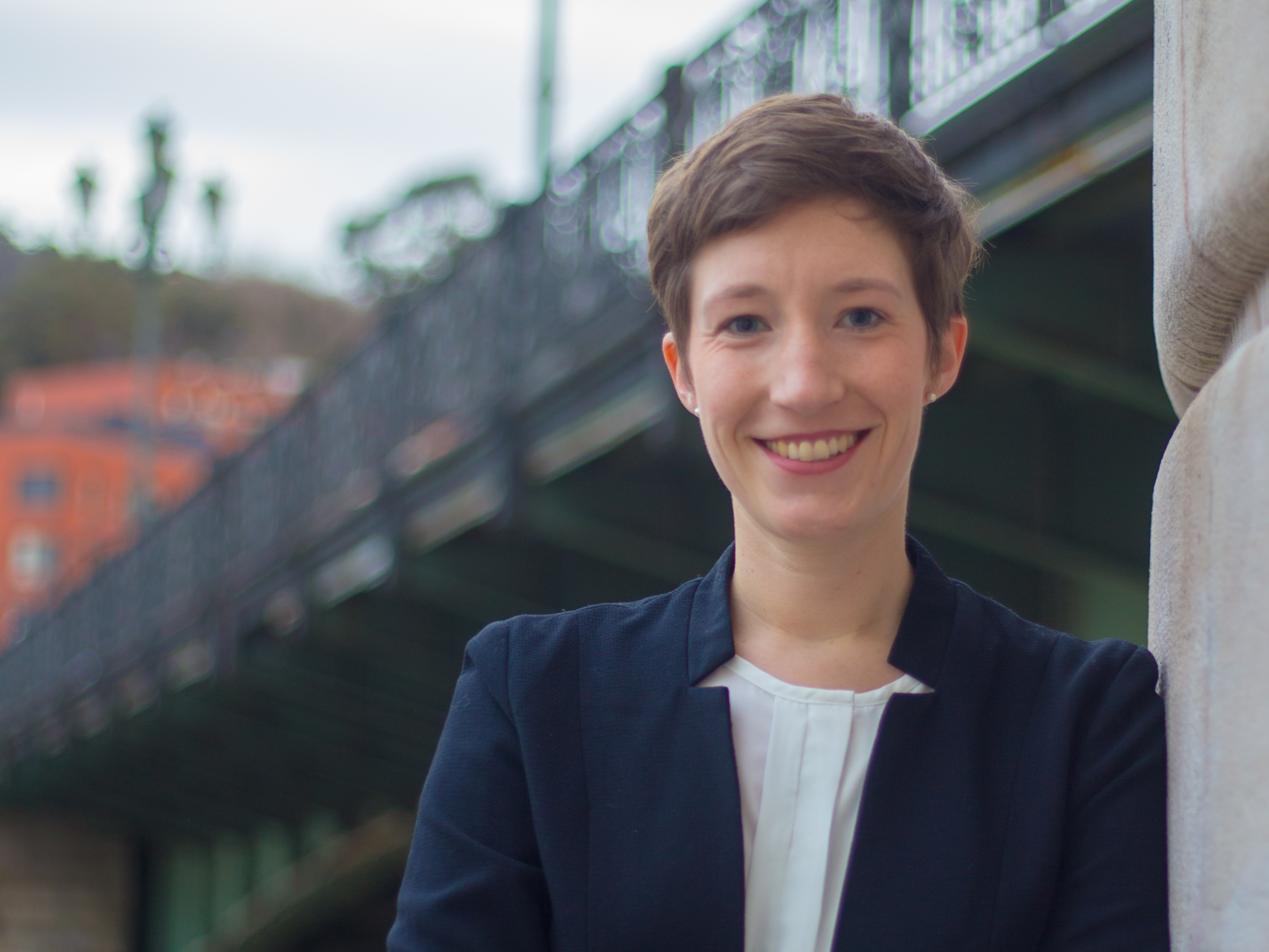Born in Lippstadt, Germany • Birth year 1988 • Studied Mathematics in Münster, Germany • Highest degree M.Sc. in Applied Mathematics • Lives in Friedrichshafen, Germany • Occupation software developer (automotive sector)
I have always been fascinated by mathematics, to be precise by calculations and computations. My parents first noticed my interest in maths at the age of 5. We often played a game called Kniffel/Yahtzee where at the end all points had to be accumulated and that was my favourite part of the game. I just loved adding up all these numbers.
My interest got even stronger during high school: in the year book one of my descriptions by class mates was „i = √(-1)“. This expression summarised pretty well my time in high school. I adored mathematics and I never had any problems in studying and understanding the subject and its concepts. But then I decided to study mathematics in university and the problems began…
We motivated each other and I slowly started to love mathematics again especially the beauty of mathematical proofs.
In the beginning, I struggled a lot in how to study. I know that sounds weird but in school I never had to study to get good grades. In school we never proved any theorem, we just used all these formulas resulting from them. However, in university I learned why these formulas are correct. In the first years of studying mathematics, I learned the basics of analysis, linear algebra, stochastic, logics and numerical analysis. I failed a lot of these exams and at some point, somewhere around the fourth semester, I even thought about quitting and doing something else. Fortunately, at this point I realised that most maths students struggled with the same or similar problems. This common issue and uniting quest created a strong sense of community among the students and that was one of the best parts of studying mathematics for me. Everybody, even the professors, were very helpful and supportive and I never felt alone. We motivated each other and I slowly started to love mathematics again especially the beauty of mathematical proofs. At the beginning of the master studies, I attended courses in applied mathematics with practical applications in the field of biomedicine, e.g. image processing in MRI, PET and CT; in numerical analysis classes I learned to write code and implement algorithms. That was my first experience in coding but to be honest I was not expecting to be a software developer one day.
I also conducted job interviews and I have learned that it is not important what you did, it is important what you love and where you want to be in the future.
After finishing my master thesis, I did not have any clue about where to go or what to do, it was hard to find job advertisements where mathematicians are mentioned. So, I signed up in several job portals and got job offers as a software developer. First I started in a consulting and engineering company and gained work experiences as a developer and a project manager. I also conducted job interviews and I have learned that it is not important what you did, it is important what you love and where you want to be in the future.
At the moment, I am working for a company which is a worldwide supplier of driveline and chassis technology for cars. Specifically, I am responsible for shifting strategies. That means I am getting a so called “change request”. Within this change request I get a specification about the functional change of the software. For example, the customer (automotive manufacturer) wants the car to behave in a certain way, like shifting to second gear only when engine speed is above a defined threshold. My task then is to understand the request, to change the software/code, to test the new software and to document everything I did. Of course this is an easy example and the reality is much more complex but the complexity and the diversity of my job is what I like.
Looking back, I am so happy that I studied mathematics because it got me where I am right now. If I could tell my 20-year-old self a piece of advice: “Just do it, you will learn so much about yourself, about logical thinking. It is a long way, be patient with yourself, surround yourself with like-minded people, they will help you to stay on track and enjoy your time at university. Do whatever you like and makes you happy.”



Recent Comments